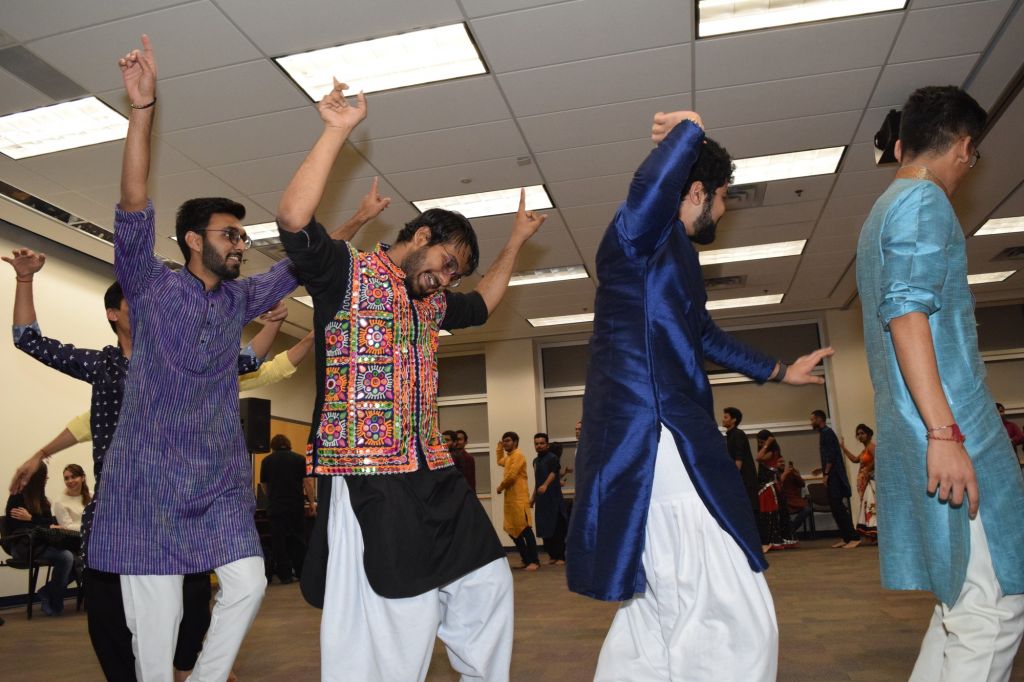Algonquin’s T-building was filled with music, dance and prayer on Oct. 26 when the Indian Cultural Diversity club hosted their own Garba Night, a celebration of Sharad Navaratri.
Navaratri is a Hindu festival that begins on the first day of the lunar month of Ashvin every year. The festival is observed all over India for nine days around the autumnal equinox, usually falling between September and October.
Dipak Vaghasiya, co-founder of the Indian Cultural Diversity club at Algonquin, hoped to bring one of the biggest festivals in India to Ottawa and embrace student differences.
“We started this group to celebrate Indian festivals and involve others and make them familiar with Indian culture,” said Vaghasiya.
The club currently has 50 members, comprising mostly of international students, and continues to grow.
The Hindu Goddess Durga is praised during this festival. Durga is a warrior goddess that combats evil and promotes purity, liberation and creation. Praying to Durga means asking for strength to ward off evil and restore Hindu dharma, the virtue and morality that balances the universe. In its essence, Navaratri is a celebration of good triumphing over evil.
Every day of the festival represents one of Durga’s nine manifestations, each with their own name and mythology. Offerings made to please specific forms include ghee for Goddess Shailputri, sugar and fruit for Goddess Brahmacharini or honey for Goddess Katyayani.
The days often involves fasting for participants, who do not eat in order to purify their bodies. Other traditions allow for the reciting of religious hymns, prayers, meditations and sacred texts.
“At the end of the nine days, we have a garba night,” said Dikshita Razdan, a first-year international student. “We dance then we pray to the goddess and worship, and then we do the Aarti.”
The Aarti is the culminating song dedicated to the goddess, wrapping up the night’s celebrations.
Algonquin’s Garba Night centered around a picture and tribute to Durga, with everyone dancing in parallel circles around it to upbeat Hindu music. The dance, or Garba, was fast and rhythmic and allowed guests who were unfamiliar with the tradition to learn quickly with a little help.
With over 200 guests, the event brought people from all over the city together to honour their culture.
“It’s a spiritual celebration for all the folks,” said Vaghasiya. “Which allows you to forget all your differences and gather for prayers and dance full of energy and enthusiasm.”


